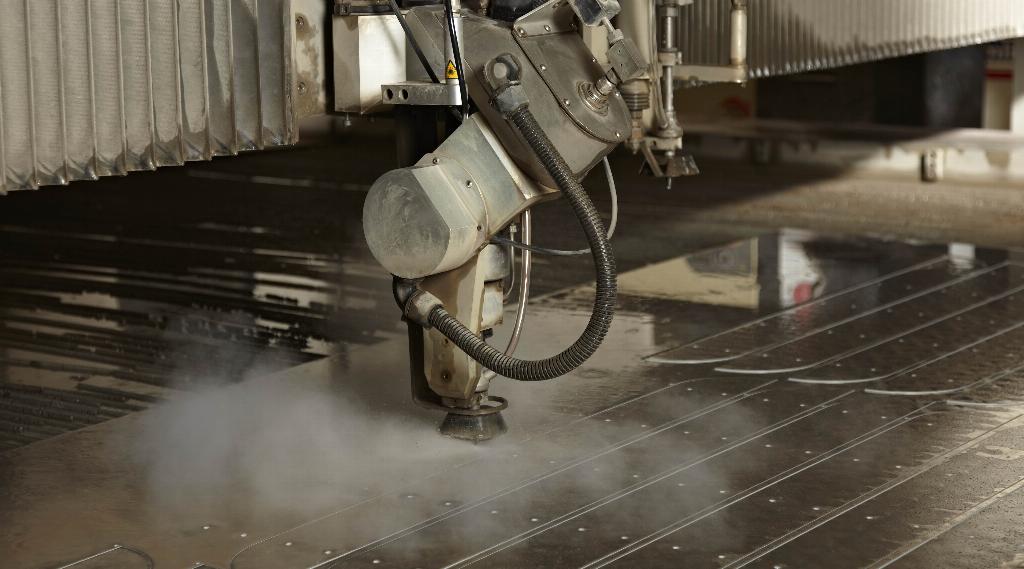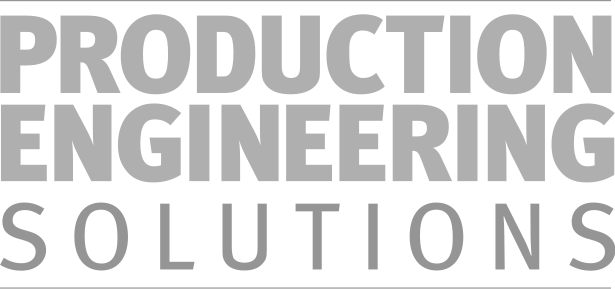Autonomate to innovate

Aerospace Manufacturing hears how P.P. Group sustains its competitive advantage through non-stop development of purpose-built IT systems and intelligent automation.
An increasing adoption of robotics, automation, data exchange and manufacturing technologies sees our manufacturing industry entering the fourth industrial revolution. Also known as Industry 4.0, it’s a philosophy that champions smart factories, smart tools, smart people and a fundamental change in the way we interact with our manufacturing-based operations - from shopfloor to top floor.
Whilst the adoption of Lean manufacturing practices has increasingly been gaining popularity throughout the world’s machine shops, another methodology known as ‘autonomation’, i.e. automation with a human touch is being employed to run machinery or processes that perform specific tasks humans can find difficult or repetitive. Using autonomation principles, a company can give its operators more autonomy so that they only need to intervene if something goes wrong with a particular process, resulting in increased productivity and a reduction in cost.
Since 1976 the P.P. Group of companies has been supplying customers with expertise in sheetmetal, profiling and processing. From its three sites in Manchester, Salford and St Helens, it supplies materials to a wide range of industries, including the aerospace sector. The company places its brand values of both people and autonomation at the core of everything it does.
These values, coupled with P.P. Group’s overall CAD skills are said to maintain its presence at the forefront of UK’s profiling and processing industry. To ensure its commitment is relevant across the full supply, the Group claims its service levels are a cut above its competitors. All of this is in line with the P.P. Group’s mission statement, which is about using autonomation or intelligent automation to remove cost from the manufacturing supply chain for both its suppliers and customers.

“Autonomation is at the heart of everything we do as a group and our ultimate goal is to take it to all our customers and suppliers in order to reinforce global supply chains,” begins company group marketing manager, Sasha Kushnir. “It allows our operators to work harmoniously with their machines and is the inspiration behind our ongoing commitment to technological innovation and corporate social responsibility.
“Our brand values have assisted the Group to develop a sustainable competitive advantage, which revolves around a purpose-built ERP system – called Profile Logic. In order to help meet the Group’s manufacturing and business processes, Profile Logic has enjoyed non-stop development for the last 20 years.”
Take a different path
The Group has established its own internal IT company to foster autonomation between its suppliers and customers. P.P. Group’s sole aim is to remove time and cost from the supply chain and promote the future of UK manufacturing.
“By utilising knowledge, experience and professionalism in everything we do, we aim to deliver the ultimate service to our clients,” Kushnir continues. “We will continue to inspire the industry to follow ‘the P.P. way’ in processing, material management, process excellence and customer service by placing our brand values – people and autonomation – at the core of everything we do.”
Full integration of P.P. Group’s ERP system across all the key manufacturing processes enabled the company to achieve outstanding results - for example in its CAD services and particularly in obtaining optimum material utilisation using nesting techniques.
It’s a nesting-related area where P.P. Group excels in incorporating different customer requirements into the same nest. During a recent presentation held at the Northwest Aerospace Alliance’s (NWAA) Annual Conference in May, Group managing director, Peter McCabe unveiled some very complex and lean nests with mixed parts.
“Our highly-trained CAD team creates very lean nests using the latest algorithms of our CAD provider,” explains McCabe. “I was able to demonstrate the astonishing outcomes of this approach during our recent presentation, held at the Northwest Aerospace Alliance’s (NWAA) Annual Conference last May.
“I compared the P.P. nest, with a leading global machine manufacturer that specialises in CAD software, which offers a paid cloud-based service. The outcome was that the P.P. nesting methodology could offer annual savings of over £100,000 if using an Alloy 625 nest.”
Ian McAllister, group’s operations director takes up the story: “Imagine the savings that could be achieved if requirements of the key players in the aerospace sector, such as Airbus and Boeing are merged together in the same titanium nests, for example. I know it is easier said than done, but if the UK is to become even more competitive in the manufacturing sector – supply chain collaboration is crucial.”
Joined-up thinking
Coupled with the CAD plate library, the nesting achievements are closely linked with Group’s stock library. The stock library automatically reads information from the company’s ERP system, giving the P.P. Group increased levels of accountability, traceability and instant information relating to stock requirements.

“The way we use our IT systems to manage our stock, enables us to have stock turns of between 8–10 times a year, when the industry standard is between three to four times,” notes McCabe. “An added benefit of this functionality is we can conduct full accurate stock takes of inventory valued at up to £500,000 within three hours, knowing it is 100% correct complying with accountancy rules.”
The Group’s ERP software helps the company to become more competitive in the other key functions of the business, such as sales and marketing.
Company sales director, Darren Wallace explains: “Profile Logic notifies us straight away if a customer goes in to liquidation, preventing any activity on any new or existing business. We also get real time email validation and a lot of customer-related information is auto-filled and validated straightaway, saving our sales team valuable time.”
The Group says it has enjoyed huge growth over the last ten years, even during the last recession. The number of employees increased rapidly from 60 in 2006, to 100 in 2016, of which 16 are apprentices. The tonnage processed doubled from 4,000 tons to 8,000 tons in the same period of time.
“I think UK’s manufacturing will become more competitive if organisations are prepared to invest in bespoke technologies that are built using the autonomation philosophy,” McCabe concludes. “Companies need to introduce software integration to enable process automation across all departments; including customers and suppliers. We need to always invest in people and process development. And of course, we all need to collaborate proactively with each other to strengthen the supply chains.”












